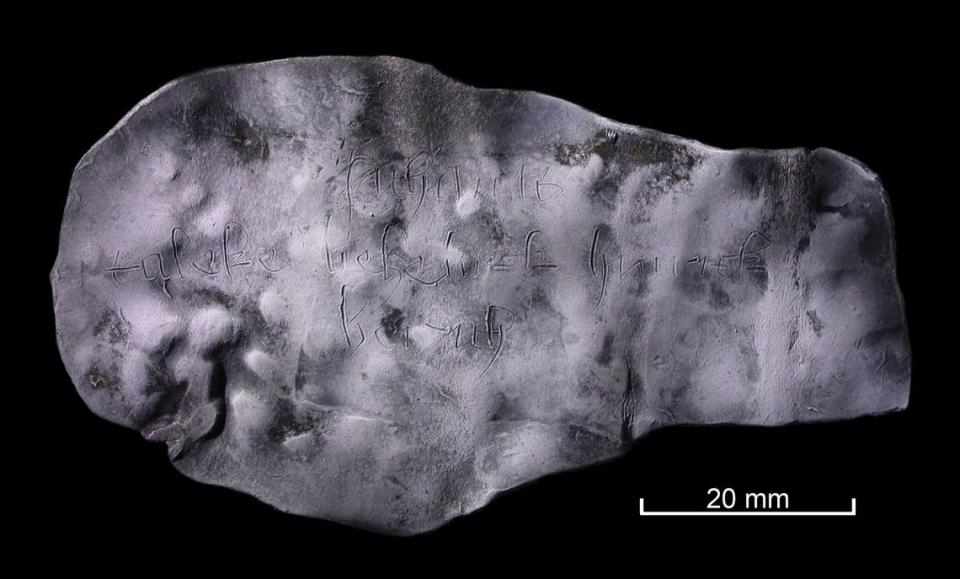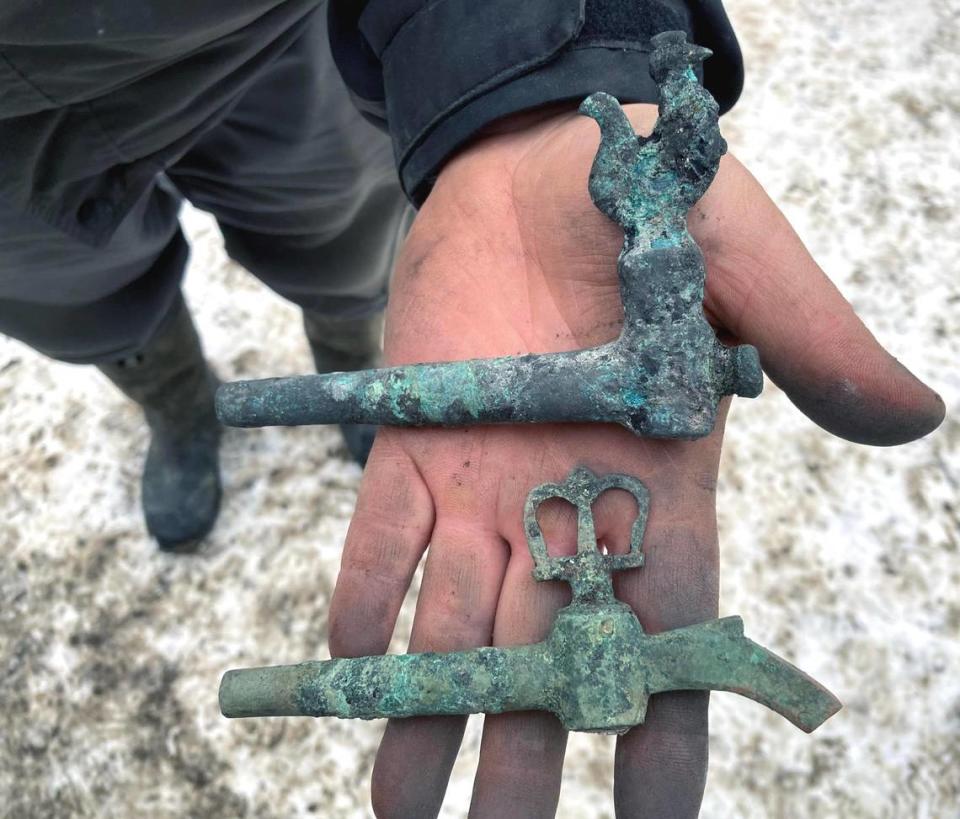500-year-old tablet — engraved with devil curse against two people — found in Germany
After discovering a Middle Ages latrine during construction on a town hall in Germany, archaeologists got to work.
At the bottom of the latrine, they found an inconspicuous piece of rolled-up metal — but when they unrolled it, they realized they had found something much more exciting.
The piece of lead was actually a curse tablet engraved with a devil’s curse against two people, according to a Dec. 12 news release from Rostock town hall officials. The tablet dates to approximately the 15th century.

Once unrolled, archaeologists said they discovered the phrase “sathanas taleke belzebuk hinrik berith“ engraved in Gothic script. The curse was directed toward a woman named Taleke and someone named Heinrich, and it called on Satan, Beelzebub and Berith.
The discovery is especially unique because curse tablets are mostly known from ancient times, around 800 B.C. until 600 A.D., in Greek and Roman regions, excavation leader Jörg Ansorge said in the release. Similar finds from the same era are mostly unknown.
Curse tablets are typically hard to find, experts said, because the curser wanted to prevent the cursed from finding them so the magic could work.
The team of archaeologists excavated six medieval houses and multiple cellars at the town hall site, according to a Dec. 12 news release from KOE, a real estate company in Rostock involved in the excavations. Within the cellars and houses, experts found traces of inhabitants’ crafts and living, a stone staircase, and various bronze taps from the 16th and 17th centuries.

Rostock is about 140 miles northwest of Berlin.
Google Translate was used to translate a release from Rostock city officials and KOE.
See ‘unusual’ and ‘unique’ treasures found in woman’s 1,300-year-old grave in England
Thousands of coins — many in ancient pouches — found in 1,500-year-old Egypt city
Ancient graves of possible married couple — one full of treasure — found in castle ruins

